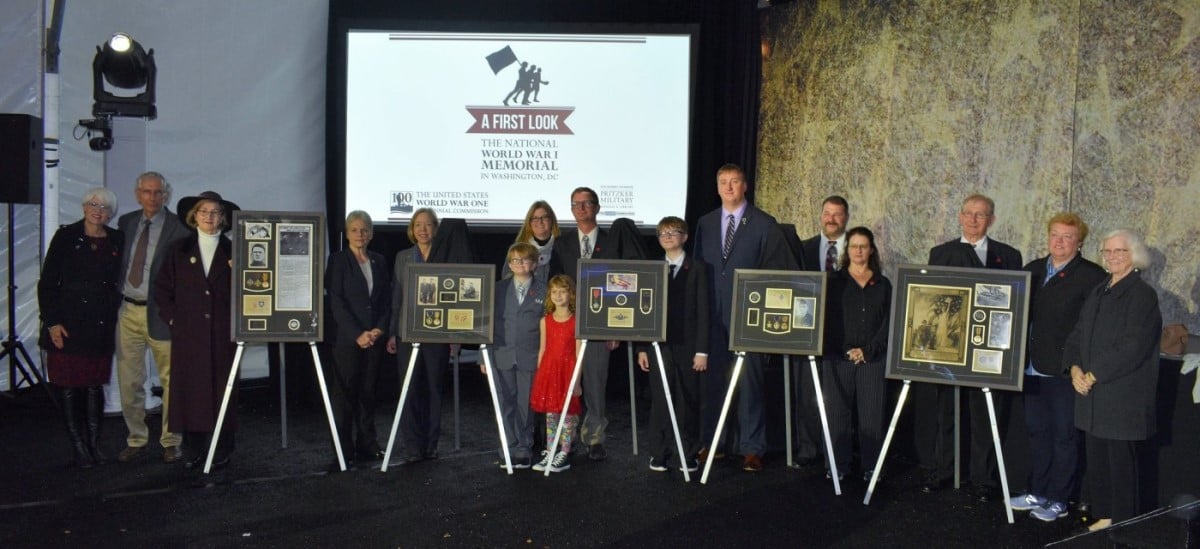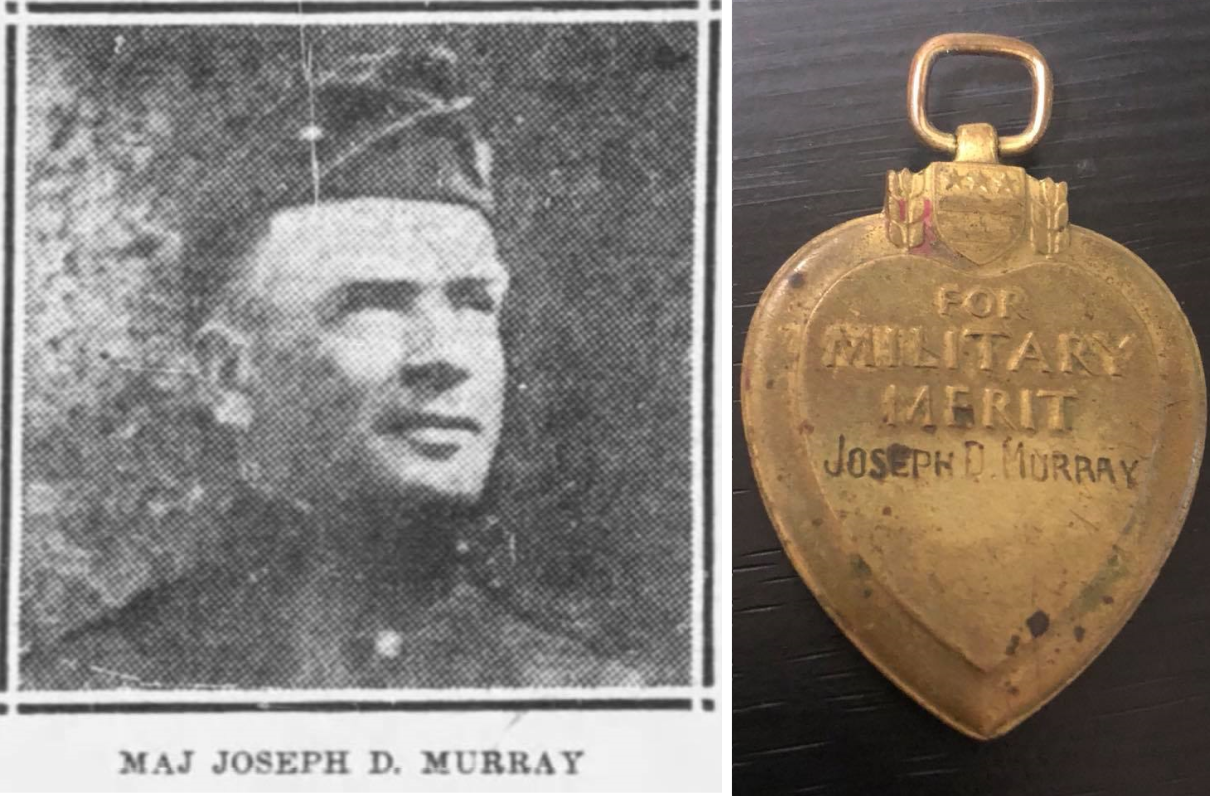Purple Heart medals - sometimes the last connection a family member has to their servicemember injured in battle - are being rescued from antique stores and online auctions to be returned to their rightful owners.
For the past six years, Purple Hearts Reunited has returned Purple Heart medals to almost 600 veterans or their family members at no cost. As Veterans Day approached, the nonprofit group met its goal of returning 100 medals to mark the centennial of the end World War I.
The Purple Heart for Lt. Col. John Murray, a legendary Marine Corps veteran, was returned to his granddaughter Virginia Szymanowski in a special ceremony in Washington, D.C., on Friday. Families of four other World War I veterans received medals honoring Army 1st Lt. Jason Hunt; Army Pvt. Leo Kammeier; Lt. Cmdr. Duncan Drucquer, who served as a pilot in the British military; and Sgt. Gaetano Alferi, who served in the Italian Army.
Szymanowski said she knew her grandfather was a Marine who had been injured in battle, but she had never seen his Purple Heart. She was thrilled when she learned Purple Hearts Reunited had tracked it down and wanted to present it to her family.
“I was surprised and absolutely delighted,” she said. “It's more than a token. It's a very real heirloom of courage and sacrifice.”
Murray, who was born in March 1884 in Concord, Mass., started his military career as a private in an infantry unit. He was also the bugler.
Before leaving for battle in World War I, Murray spent time in Vera Cruz, Mexico, where he met a coati, which is a close relative of the raccoon. He adopted one as a pet, naming it Jimmie, and it became the mascot for Murray's unit while he served in France and took part in the Battle of Belleau Wood.
Murray was wounded in battle July 18, 1918, when a bullet went through his helmet. He survived the injury.
Murray eventually moved from an infantry job to become the commander of the Marine Corps Recruiting Office in Boston, among other post-war posts. He retired on Nov. 1, 1932.
Murray died on April 10, 1941, and is buried at Arlington National Cemetery.

Family members of World War I veterans gathered in Washington, D.C., shortly before Veterans Day to accept Purple Heart medals on behalf of their servicemembers. (Purple Hearts Reunited).
The Medal, the Mission
The Purple Heart medal, established in 1782 by George Washington, then commander-in-chief of the Continental Army, was initially issued as a merit badge. Today, the Purple Heart is given to troops who are wounded or killed as a result of enemy action.
More than 1.8 million Purple Hearts have been issued to military personnel. Purple Hearts Reunited has traveled to 42 states to return the medals.
Zachariah Fike, founder of Purple Hearts Reunited and a major in the Vermont National Guard, said the group aims to educate families on their troop's service. The proudest moments, he said, come when a small town learns the history of a resident who received a Purple Heart and creates a memorial to preserve their service.
Purple Heart medals have been found in estate sales, at pawn shops, and on collector websites, Fike said.
The organization has spent more than $50,000 to retrieve the medals. The most expensive medal - given to a Marine who served in Iwo Jima during World War II - cost $5,000.
For Fike, the medal's proper resting place should be on display for the family.
“It symbolizes the ultimate sacrifice a soldier who fought for our freedom, they went to war and through combat, they shed their blood or in some cases, their lives for us,” Fike said. “And to us, that's the most special symbol in our nation and we should do everything we can to honor that veteran and tell their story, and through that tory honor their family and bring that medal home.”
Amanda Dolasinski is MOAA's staff writer. She can be reached at amandad@moaa.org. Follow her on Twitter @AmandaMOAA.

